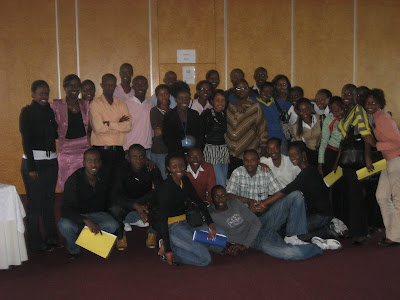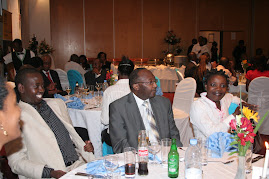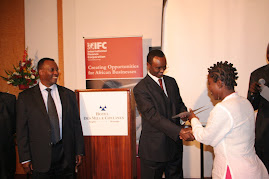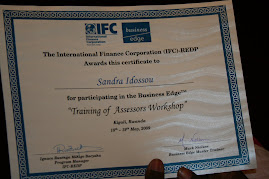http://www.newtimes.co.rw/index.php?issue=14067&article=2208&week=45
Monday, 2nd November 2009
CUSTOMER CARE: Back to our good values and traditions
By Sandra idossou
“Three days ago, together with colleagues from Holland, we were in a village called Nkungu near Cyangugu. We got hungry at a certain time but there was no restaurant around the village so I decided to enter this small village shop to get some biscuits.
When I entered this little shop, I met an old woman of probably more than 60 years chatting with a friend.

She instantly stopped her conversation, offered me such a friendly and warm smile that made me forgot about my hunger. Although we were faced with the language barrier, this woman tried her best to assist me.
She was available and suggested two different types of biscuits. I was so much overwhelmed with her customer care attitudes that I decided to buy all her stock of biscuit.
Why can’t we get this type of service in Kigali and other big cities? I have been in several shops in Kigali and in other cities in Rwanda but had never experienced such warmth through the sales person ;
Most at times, when I enter a shop, I have the impression that I’m disturbing the sales person.
How I wish my banker, my insurance company, my telecom provider, my restaurant, the cashier at my grocery shop and the so many service providers I deal with could learn good customer care attitudes from this village old woman”.
When I received this mail from a reader, my first question was: Is Customer Care in villages better than in big cities? Are people in villages better equipped with good manners than those in town?
Are we so much “civilized” or “westernized” in cities that we have forgotten the good manners we were thought in our traditions?
As Africans, we have many values that go hand in hand with good customer care practices. We are thought right from our childhood to be nice to visitors, to show appreciation to people, to greet or thank people, to honor our promises, to be diligent with our work, to be courteous and many other values…

Just look at our African traditions and cultures. We are known to be generally warm, friendly and very welcoming. Look at how we receive people at our homes!!! We do everything to make our visitors feel good in our presence in order to create positive bonding with them.
I remember the first time I saw Rwandans greeting each other with the big hugs and warmth. I found this so beautiful that I could not understand why people in offices and businesses were so cold.

Why can’t we see the same warmth in our offices? Why have we left our good traditions and culture at home? Why are we completely different when we are working?
Why do our smiling faces disappear just when we enter our shops?
From the story above, we can all understand that the good customer care attitudes portrayed by this old woman were natural to her.
I’m sure she has never gone through any formal training on customer care; neither does she read any of the customer care articles in The Newtimes.
But deep inside her, she knows exactly what it takes to touch customers’ emotions. She just understand that being available and nice to customers is a requisite for everyone sustainable business.

Customer service is the set of behaviors undertaken by any person in business during an interaction with customers.
It is simply being able to provide assistance, care, respect, attention to customers. Customer care has always been a competitive advantage even in our traditions as it entails all the little things we do to build excellent rapport with each and every customer.
The word tradition comes from the Latin word traditio which means “to hand down” or “to hand over.” It is a custom that is memorized and passed down from generation to generation.
As Africans, we can be proud of our rich traditions and values on hospitality, caring, loyalty, responsibility, selflessness, solidarity, perseverance, sociability, honesty, courtesy, respect and even on dress code and so many other more.

A Culture defines our behaviors as a person but also as a nation. And these behaviors of today have a lot of impact on our future destiny as a nation.
I once read somewhere that “A people without culture are not a people at all”. Let’s then reinforce our traditional values for our own future and destiny as these cultural
values and attitudes will shape our economic success.
“Watch your thoughts, for they become words, Choose your words, for they become actions. Understand your actions, for they become habits. Study your habits, for they will become your character. Develop your character, for it becomes your destiny” Oliver Wendell Holmes
So no matter the type of business you are into, behave in a manner that your customers become loyal to you. Your own destiny is in your hands and in your words. Let’s decide to go back today to our values and traditions and we will be able to create better emotional relationship with people we deal with.
sandra.idossou@sheiconsulting.comThe author is a customer service consultant working in Rwanda
http://www.sheiconsulting.com/










































































